Is this air purifier made in China
Molekule Air Purifier Review. Is it Worth It?
- 05/14/2024
- 5 Comments
Ben Trapskin
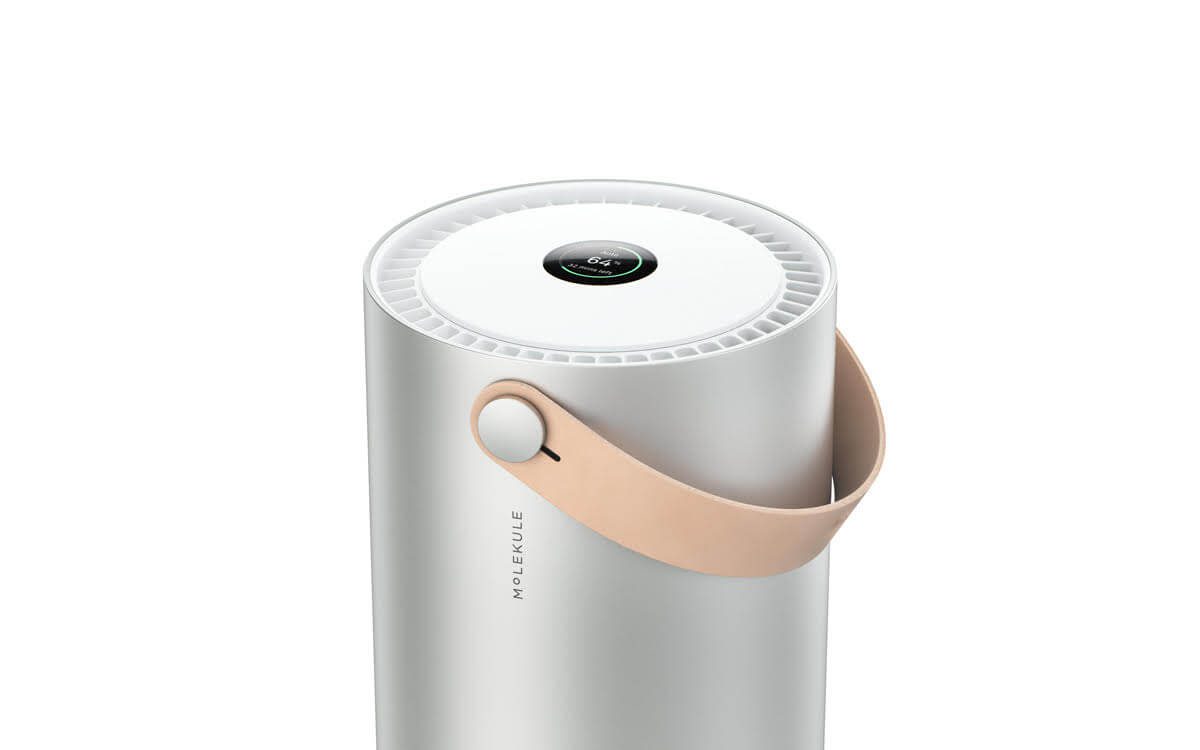
|
||
|
||
|
The History of Molekule: A Journey of Science and Air Purification
Molekule’s story begins in the 1990s with Dharendra Yogi Goswami, a scientist motivated by a personal battle. His son suffered from severe asthma, pushing him to seek solutions to indoor air pollution’s harmful effects. This quest led him to develop photo-voltaic technology capable of breaking down air pollutants using ultraviolet light.
2014: Goswami’s children, Jaya and Dilip, patent the technology and found Transformair, laying the foundation for today’s Molekule.
2016: The company rebrands as Molekule, reflecting its focus on attacking pollutants at a molecular level.
2017: Molekule Air, the first consumer air purifier using PECO (Photoelectrochemical Oxidation) technology, enters the market with positive reception.
2018-2020: Continuous growth sees Molekule raise million-dollar investments and release the Molekule Air Mini, a smaller and more affordable version.
2021: Molekule’s Air Mini and Air Mini+ receive FDA clearance for use in medical settings, highlighting the technology’s potential.
2022: The company faces controversy amidst claims of profiting from the pandemic by suggesting PECO could destroy the coronavirus, later found unsubstantiated by independent research.
2023: Molekule merges with AeroClean Technologies, forming the publicly traded Molekule Group Inc. This expands their product portfolio and strengthens their presence in the air purification market.
Today: Molekule continues to develop new products and refine its PECO technology while facing competition from established players in the air purifier industry. Its future success hinges on balancing its unique technology with affordability, addressing scientific concerns, and proving its long-term efficacy in improving indoor air quality.
Key highlights:
-
- Driven by a personal need and a focus on innovative technology.
-
- Rapid growth and significant funding in the early years.
-
- FDA clearance for medical use showcasing potential applications.
-
- Controversy around COVID-19 claims highlighting the need for scientific rigor.
-
- Recent merger expanding product reach and market presence.
Molekule’s story is still unfolding, and its future holds promise for innovation in air purification. However, challenges remain, demanding continuous improvement and evidence-based solutions to secure long-term success.
Senses chemicals, humidity, CO2, Auto Protect reacts to chemicals
I recently received a free Molekule air purifier for review and the newest Molekule Air Mini. Clean air has a direct impact on sleep quality. If you find that you wake up sneezing or with a stuffy nose, you may want to look into cleaning up the air in your bedroom. I have tried many air purifiers and all of them clean the air with HEPA filtration technology. While these do a good job, the technology really hasn’t evolved much. That’s why I was so excited to be able to try the Molekule.
Here’s a video overview of the differences between the original Molekule and the Molekule Mini.
The Molecule is different in that it has a PECO filter which stands for Photo Electrochemical Oxidation. According to their website:
Developed over two decades by research scientists, PECO is an innovative technology that utilizes free radicals—the same radicals used to kill cancer cells—to oxidize pollutants. By using nanotechnology, PECO is able to destroy pollutants 1000 times smaller than what traditional HEPA filters can trap.
This is a strong claim and would certainly put it ahead of a HEPA filter in terms of effectiveness but I think what it really comes down to is will it improve your sleep and overall health? I put it to the test in our house and here are my findings.
Ordering and Unboxing the Molekule
Right now the only way to get this is through their official website. There are no coupon codes for the Molekule but right now you can get a free six-month filter pack with your order. A $65 value.
After you place your order you will get an email confirmation and another email a few days later with tracking information. It will arrive in a box like the one below.
I was really impressed with the care they put into packing it. It was fun to unbox. As you can see below it is protected in a white pouch which lessens the need for more plastic.
There’s really no physical setup required. Just plug it in. The filter you get in the box is an extra filter you can use when it comes time to replace it.
You may have considered buying this just based on looks alone and I can’t blame you. Having another electronic box in your room is probably the last thing you want on your Pinterest board. This looks like some futuristic fuel cell with a leather strap. It is a clean, modern design that won’t look out of place.
Setting up the Molekule
Other reviews have a lot of complaints about the Molekule app and setup process. I found the setup to be a breeze. It could be that I received it when updates were made to the software but I didn’t have any issues.
To get it setup just download the app on the Play or Itunes store and power up the Molekule. The app will walk you through the process. Once it is setup on your wifi network, it will do an initial cleaning which can take an hour, give or take depending on your room size.
How Much Does the Molekule Cost?
This is the most expensive air purifier I have ever used. It currently retails for $799. Keep in mind though that you are getting a totally new technology that claims not only to trap but destroy pollutants 1,000 times smaller than what a HEPA filter can trap.
My Molekule Findings
I unbox lots of mattresses and any mattress made with foam will be prone to some off-gassing. Since I do this much more frequently than the average consumer, I normally have an air filter in my room. Unfortunately, they really aren’t good at eliminating volatile oganic compounds (VOCs).
The graph below shows how quickly a PECO filter, found in the Molekule will eliminate VOCs. This testing was done by the University of Minnesota and University of South Florida.
You can view the full white paper here which explains the process in more detail.
The Molekule Air Mini
The Molekule mini is ideal for bedrooms or other small rooms. It uses the same PECO filter technology but in a smaller package.
The unboxing experience is the same and so is the build quality. The instructions are added to the box which makes setup a bit faster. One of their recommendations is to put it on your nightstand but there’s no way it would fit on my nightstand with my lamp, phone and everything else. Mine ended up on my dresser.
Again, rather than more plastic, they put the unit in a cloth bag.
Out of the box, it is basically ready to go.
The cord can wind itself underneath the unit for storage or to just get the right amount of cord to make your space neat. Again, great design by Molekule. This cord is a two-prong rather than the three-prong on the bigger unit.
There are 5 different levels for the Mini and there is currently no option for Wifi connectivity to the app but I think that may change in the near future. Below is a little video where you can hear it get louder as I increase the intensity.
At $399 the Molekule Mini is a more economical choice and if you have a small room, this would probably be the way to go.
My Molekule Air Purifier Recommendation
There are many facets to sleep hygiene, clean sheets, clean mattress, consistent bedtime, dark room, cool temperature, etc. What good is a nice mattress if it’s in a room where you are breathing polluted air? Investing in a good HEPA filter is a great start but having gone through many HEPA filters, I was really impressed with the PECO filter. After the first night my morning sneezing routing was almost completely eliminated. I now leave it on in silent mode.
One of the drawbacks is that fort he PECO filter to work its best, the light needs to be on. That can be problematic in a bedroom at night. Thankfully there is a night mode that keeps the filter running but turns the light on. I have night mode enabled but I did notice that it’s not quite as effective as eliminating any morning congestion. I think over time as I keep the filter running during the day, most of the pollutants in the room will be completely eliminated.
If you are thinking of investing in a filter, the Molekule is by far the best technology I have used and has made a real difference in my sleep quality and how I feel in the morning. While these would be great for every room of the house, they aren’t cheap and I think you will get the most bang for your buck by having one in your bedroom.
|
||
|
||
|
Senses chemicals, humidity, CO2, Auto Protect reacts to chemicals
Is Molekule Better Than a HEPA Filter?
Molekule and HEPA filters are both air purification systems that help improve indoor air quality, but they utilize different technologies and have unique strengths and weaknesses. Here’s a comparison between the two:
Molekule:
-
Technology: Molekule uses Photo Electrochemical Oxidation (PECO) technology, which involves a light-activated nanocatalyst that breaks down pollutants at a molecular level, turning them into harmless substances.
-
Effectiveness: Molekule claims to eliminate a wide range of pollutants, including bacteria, viruses, mold, allergens, and VOCs (Volatile Organic Compounds), that HEPA filters may not be as effective at capturing.
-
Filter replacement: The PECO filter in a Molekule device needs to be replaced every six months, while the pre-filter should be replaced every three months.
-
Noise: Molekule devices tend to be relatively quiet, with noise levels similar to a HEPA filter.
-
Price: Molekule air purifiers are generally more expensive than many HEPA-based air purifiers.
HEPA filter:
-
Technology: HEPA (High-Efficiency Particulate Air) filters use a dense network of fibers to mechanically capture particles in the air, including dust, pollen, and pet dander.
-
Effectiveness: HEPA filters can capture particles as small as 0.3 microns with 99.97% efficiency. They are very effective at removing allergens and particulate matter but may not be as efficient in eliminating viruses, bacteria, and VOCs.
-
Filter replacement: HEPA filters generally need to be replaced every 12-18 months, depending on usage and environmental factors. Some devices may also include a pre-filter or activated carbon filter to remove larger particles and odors, which may require more frequent replacement.
-
Noise: HEPA filters can be relatively quiet, depending on the device and fan speed settings.
-
Price: HEPA-based air purifiers are available in a wide range of prices, with many affordable options on the market.
In summary, Molekule and HEPA filters both have their merits. Molekule’s PECO technology may be more effective at eliminating a wider range of pollutants, while HEPA filters excel at capturing allergens and particulate matter. Ultimately, the choice between the two will depend on your specific needs, priorities, and budget.
Is Molekule Worth It Long Term?
Positive aspects contributing to long-term satisfaction:
-
- PECO technology: Some users report noticeable improvements in air quality and allergy symptoms due to Molekule’s PECO technology, which claims to destroy pollutants rather than capture them.
-
- Quiet operation: Many find Molekule air purifiers to be quieter than traditional HEPA filters, especially at lower fan speeds.
-
- Sleek design: The minimalist and modern design of Molekule units appeals to some users who prioritize aesthetics.
-
- Good customer service: Many users report positive experiences with Molekule’s customer service team.
Negative aspects influencing long-term satisfaction:
-
- High cost: Molekule air purifiers are significantly more expensive than many HEPA-based air purifiers with similar coverage areas.
-
- Limited coverage area: Molekule units are typically designed for smaller rooms, and some users feel they are not powerful enough for larger spaces.
-
- Replacement filter costs: PECO filters are more expensive than standard HEPA filters, adding to the ongoing cost of ownership.
-
- Lack of certain features: Some users miss features like air quality sensors and smart home integration found in other air purifiers.
-
- Mixed reports on effectiveness: While some users swear by Molekule’s effectiveness, others haven’t noticed a significant difference in air quality compared to cheaper HEPA options.
Overall, long-term satisfaction with Molekule seems to depend on individual priorities and expectations. If you prioritize a quiet, aesthetically pleasing air purifier with unique PECO technology and are willing to pay a premium price, Molekule could be a good fit. However, if you prioritize affordability, extensive coverage area, or advanced smart features, other air purifiers might offer better value.
Who Owns Molekule?
Molekule is a privately held company founded by Dr. Yogi Goswami, a scientist and engineer, along with his children Dilip Goswami and Jaya Rao. The company was established in 2014 and is headquartered in San Francisco, California. As a private company, Molekule is owned by its founders, private investors, and potentially employees with stock options. The specific ownership structure is not publicly available, but the Goswami family is central to the company’s leadership and development.
Does Molekule Detect Mold?
Molekule air purifiers do not directly detect mold in the air; rather, they use their proprietary Photo Electrochemical Oxidation (PECO) technology to eliminate a wide range of pollutants, including mold spores. PECO works by using a light-activated nanocatalyst to break down pollutants at the molecular level, turning them into harmless substances.
While Molekule air purifiers can effectively remove mold spores from the air, they do not have a built-in sensor or mechanism to specifically detect the presence of mold in your environment. To detect mold, you may need to use a mold testing kit or hire a professional mold inspector. However, by removing mold spores from the air, Molekule air purifiers can help to reduce the risk of mold growth and improve indoor air quality.
Air Purifiers Similar to Molekule: A Feature Comparison
| Feature | Molekule Air Mini+ | Blueair Blue Pure Max | IQAir Atem | Coway AP-1512HH | Blueair Blue Pure 411i Max |
|---|---|---|---|---|---|
| Technology | PECO (destroys pollutants) | HEPA + Activated Carbon | HEPA + Carbon + Gas Sensor | HEPA + Deodorization + True HEPA + Vital Ion | HEPASilent (HEPA + Carbon) |
| Coverage Area | 250 sq ft | 330 sq ft | 215 sq ft | 361 sq ft | 526 sq ft |
| CADR (Dust/Pollen/Smoke) | 35 CFM | 350 CFM / 310 CFM / 340 CFM | N/A | 246 CFM / 240 CFM / 233 CFM | N/A |
| Filter Life | 6 months | 6 months | 1 year | 4 months (pre-filter), 6 months (HEPA), 1 year (Deodorization) | 6-9 months |
| Smart Features | Wi-Fi, Auto Mode, Air Quality Monitoring | None | Wi-Fi, Air Quality Monitoring | Auto Mode, Air Quality Monitoring | Wi-Fi, Voice Control, Air Quality Monitoring |
| Noise Level (dB) | 43 dB | 46 dB | 34 dB | 24.4 – 53.8 dB | 43 dB |
| Price | $399 | $169.99 | $399 | $325.20 | $279.99 |
| Pros | Destroys pollutants, quiet, smart features | Affordable, compact, quiet | High-quality filters, long filter life, quiet | High performance, compact, air quality sensor | Powerful, Wi-Fi, voice control |
| Cons | Expensive, limited coverage area | No smart features, shorter filter life | Smaller coverage area | More frequent filter changes, bulky | High operating costs |
Additional Notes:
-
- Molekule’s PECO technology is unique and claims to destroy pollutants, while other air purifiers primarily capture them.
-
- Blueair Blue Pure Max and Coway AP-1512HH are more budget-friendly options compared to Molekule and IQAir.
-
- IQAir Atem is a portable air purifier, ideal for personal use.
-
- Blueair Blue Pure 411i Max offers smart features and voice control.
Please note: This table is not exhaustive and there are many other air purifiers on the market. It is important to consider your individual needs and budget when choosing an air purifier.
5 thoughts on “Molekule Air Purifier Review. Is it Worth It?”
-
-
MY molekule has been off for a year i brought it out to put new filters in plugged in nothing has happened Help
Reply
-
-
Good review. What about pet pollutants?
Reply -
Ya “connect to your wi fi, get our app” Screw that plug it in and switch it on or no deal. What the HELL is with all this app garbage? I bet this thing gathers data about every aspect of your house that it can. Even if not , again why the hell would I download ANYTHING for a damned air filter?
Reply-
smartphones are like mini computers. Using an app saves them the cost of adding the needed computer parts to the machine. It also probably saves the consumer costs. I doubt it gathers any other data then the particles in the air. Our phones already gather the rest of the info about our entire lives anyway.
Reply
-
Leave a Comment Cancel reply
This site uses Akismet to reduce spam. Learn how your comment data is processed.
Have Questions?
Text us at 858-232-5760 for assistance. We’re happy to help!

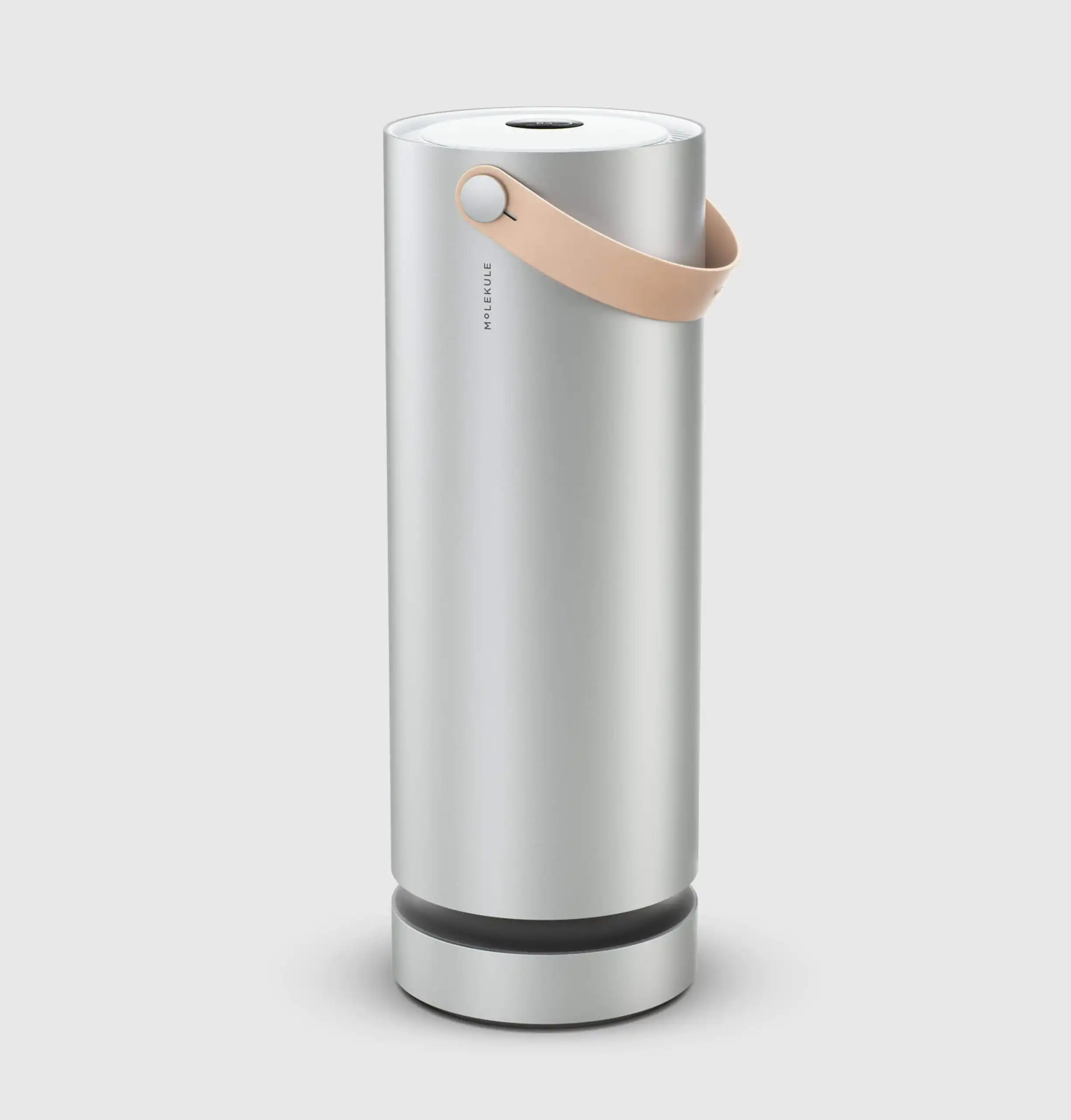
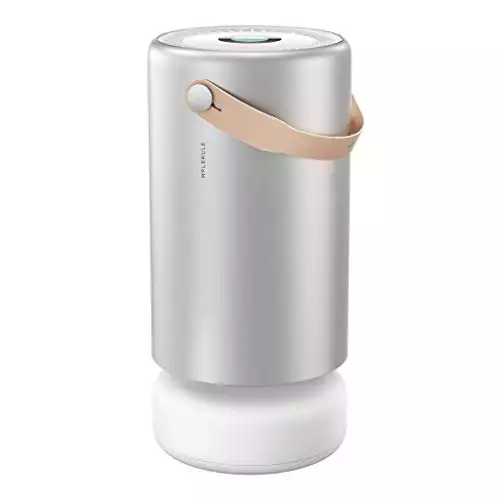







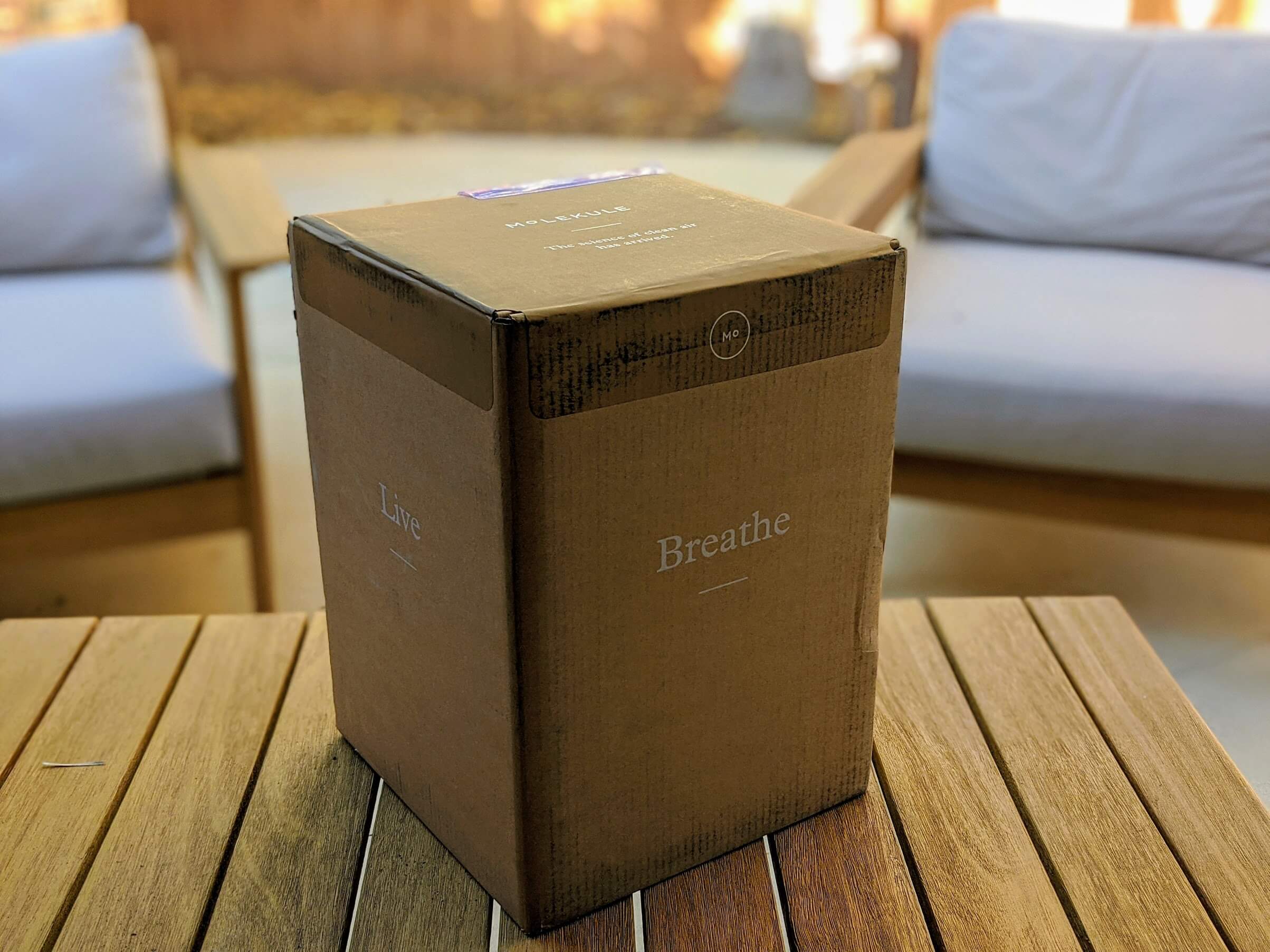
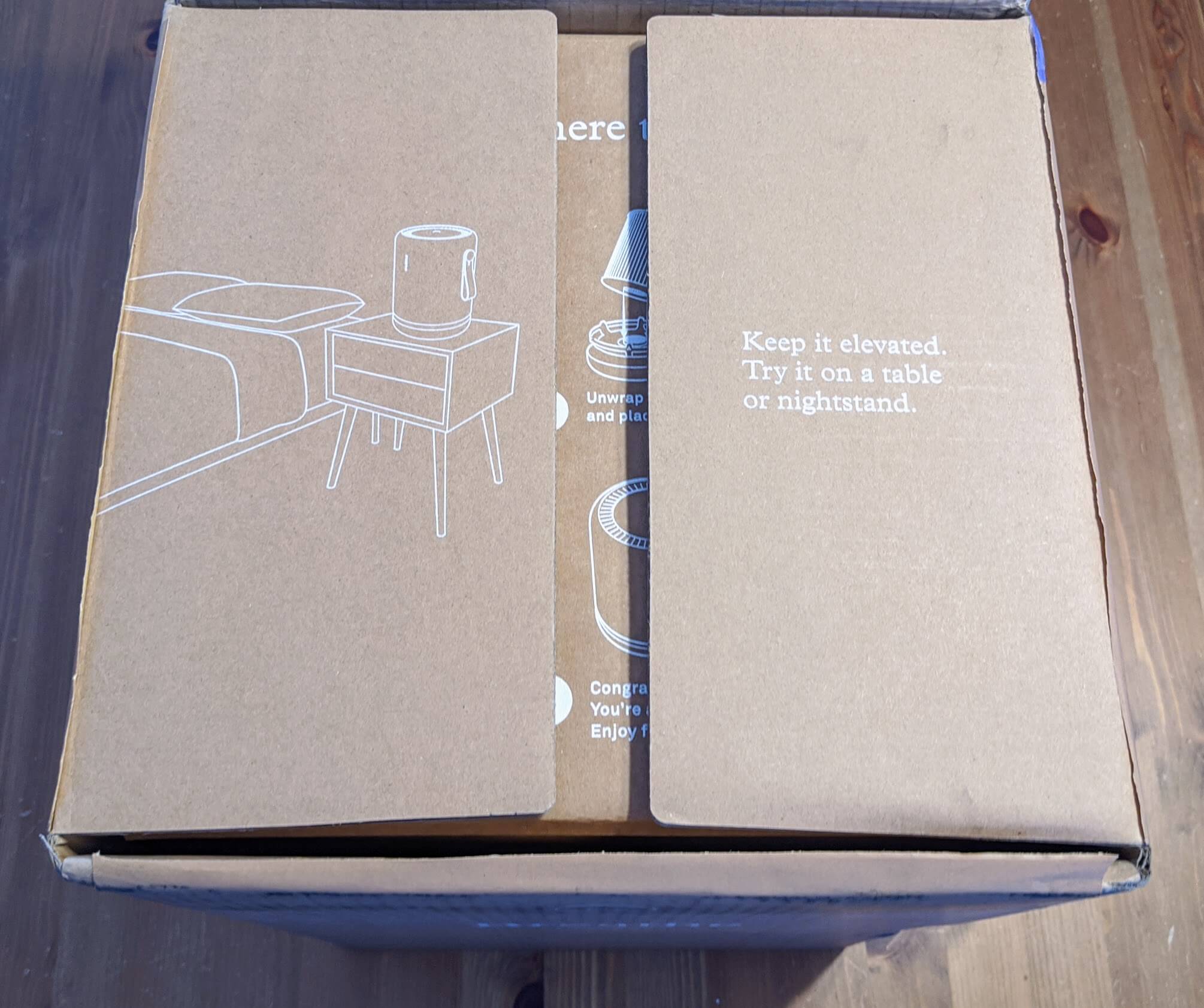



5 thoughts on “Molekule Air Purifier Review. Is it Worth It?”
Is this air purifier made in China
MY molekule has been off for a year i brought it out to put new filters in plugged in nothing has happened Help
Good review. What about pet pollutants?
Ya “connect to your wi fi, get our app” Screw that plug it in and switch it on or no deal. What the HELL is with all this app garbage? I bet this thing gathers data about every aspect of your house that it can. Even if not , again why the hell would I download ANYTHING for a damned air filter?
smartphones are like mini computers. Using an app saves them the cost of adding the needed computer parts to the machine. It also probably saves the consumer costs. I doubt it gathers any other data then the particles in the air. Our phones already gather the rest of the info about our entire lives anyway.